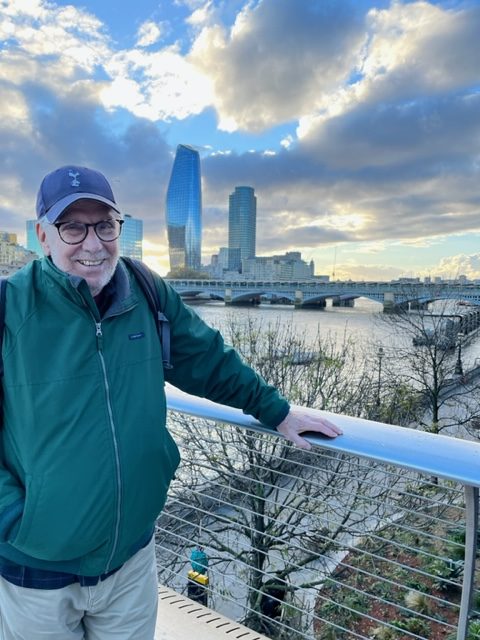By Encore participant Kip Zegers
3 min read
 Five years ago, just retired after having been a teacher for 33 years, I had a chance to go back to Union Theological Seminary. It was exactly 50 years since I’d walked in and started work on a Masters degree in education. I had never finished, dropping out in 1969 to become a Conscientious Objector, but I was not looking into my own past, I was taking a class called “Encore.” Now as class began, it was clear that Union was a good place to be again: tolerant, warm, and challenging. Mine was the second Encore cohort, a class of 15, most with a connection to the church, all having had careers in service, all of us seeking an encore in our lives.
Five years ago, just retired after having been a teacher for 33 years, I had a chance to go back to Union Theological Seminary. It was exactly 50 years since I’d walked in and started work on a Masters degree in education. I had never finished, dropping out in 1969 to become a Conscientious Objector, but I was not looking into my own past, I was taking a class called “Encore.” Now as class began, it was clear that Union was a good place to be again: tolerant, warm, and challenging. Mine was the second Encore cohort, a class of 15, most with a connection to the church, all having had careers in service, all of us seeking an encore in our lives.
Retirement was a word I already hated. It seemed to mean I was on basement stairs, headed down. But change is also mysterious, and “Sin happens when we refuse to keep growing.” These are words attributed to St. Gregory of Nicea. I found them in Falling Upward, by Richard Rohr, one of our Encore texts. Rohr argues that after we take a painful fall, as into retirement, we can finally, and truly, look around. Going downstairs, one might end upstairs. This is falling up. This he called the second half of life; it was a take on the “golden years” that I was ready to hear.
My beloved career as a teacher was gone. My daughter was grown. My wife deep into her own work. I had spent 33 years as a writing teacher and as a poet. I’d retired in 2017 because “it was time,” words that still bewilder me. In leaving I’d taken a fall. Being in a group with 14 other people, and excellent staff, allowed space to grow in, to talk, and listen. I found Encore a space where ageing was taken seriously, and where I found courage. At Encore, someone said, having retired do not repeat yourself, do the same things in a new way. In the first half of my life, I had been busy searching for, learning, then practicing a demanding profession. Then came my fall into a place where I was just me, not “Mr. Z.” As me, a 75 year old man with no title or status, I walked into a room of writers as old as 103 and was shocked. “They’re so old!” I thought. “Where are the kids?” On one wall in that room was a mirror, and when I looked I could see how much alike we were. I hoped that my reaction did not show. We began to work together, and I was
doing the same thing in a different way, still a writing teacher and poet. I was falling up.
I’d found that group by applying for part time work through a group called ReServe. It had led me to New York Hospital Community Outreach, and a group that had been running for years. It was not about competition or publication. The point was to be together as writers, to speak of our writing, to get on with it, in the moment. We did not complain, or speak of our illnesses. We brought in writing and spoke of that. My job was to make it safe, and interesting. To help it continue. Then I attended hours of training with the New York Writers Coalition. The Coalition runs a wide variety of writer’s workshops, ranging from work with prisoners to work with kids, to work with drop-ins in libraries. I was offered a chance to lead another ongoing group, this one at SAGE (service and advocacy for gay elders), it was work, it was great, and then, two years in, along came Covid.
The Hospital Outreach group has for years now been meeting over the phone, via Free Conference Calls.com. The SAGE group meets via Zoom. There have been five deaths in my two groups, five members have gone inactive, three have joined, and one has disappeared. We feel shaken, then look forward, as we can. Three members are in their 90’s, more in their 80’s, and we are an essential part of the week for each other. It is remarkable, and fragile. I am expected to be there. I get to lead. We are students in the school of living in time. There is the sense of looking ahead, even when writing about the past. We have not descended to a basement, we are instead higher in the house, in rooms that we had not known were there. Marvelous writing was coming into view. Writing cannot replace suffering, or banish tedium and isolation, but re-seeing and inventing establishes a future tense in living, and if I am now in the second half of life, I also know that there is no third half, to anything, and it is best that we do not refuse to grow.
Click Here to learn more about the Encore Transition Program
